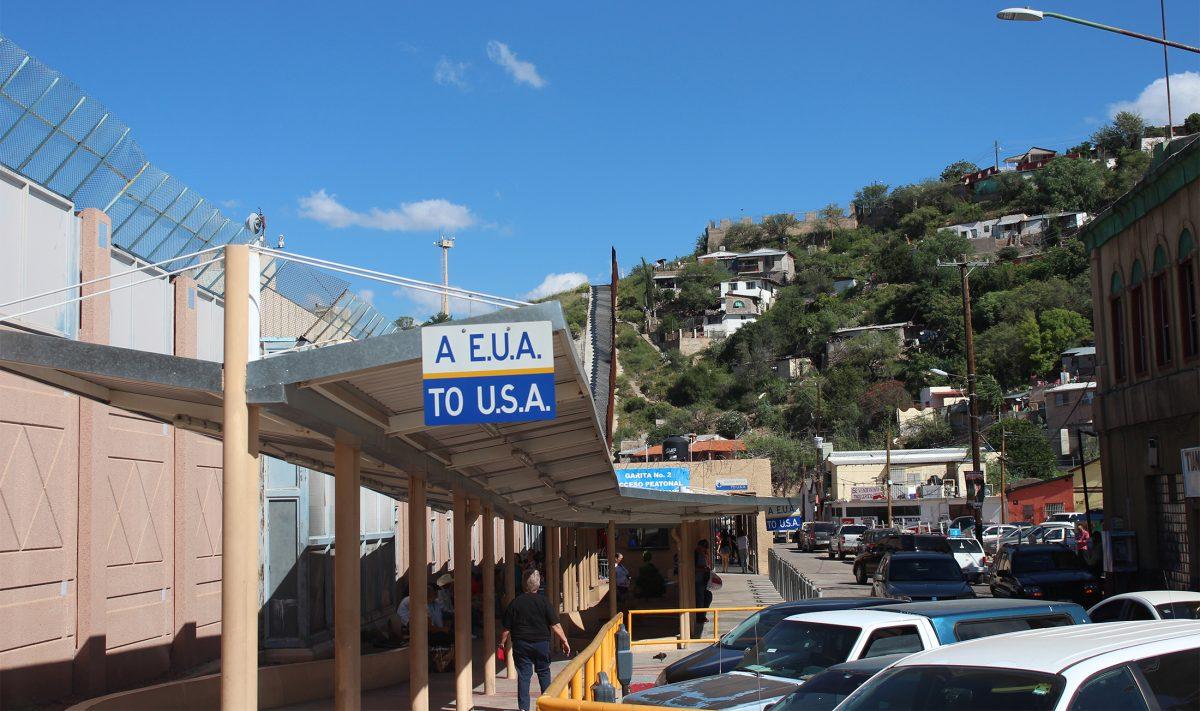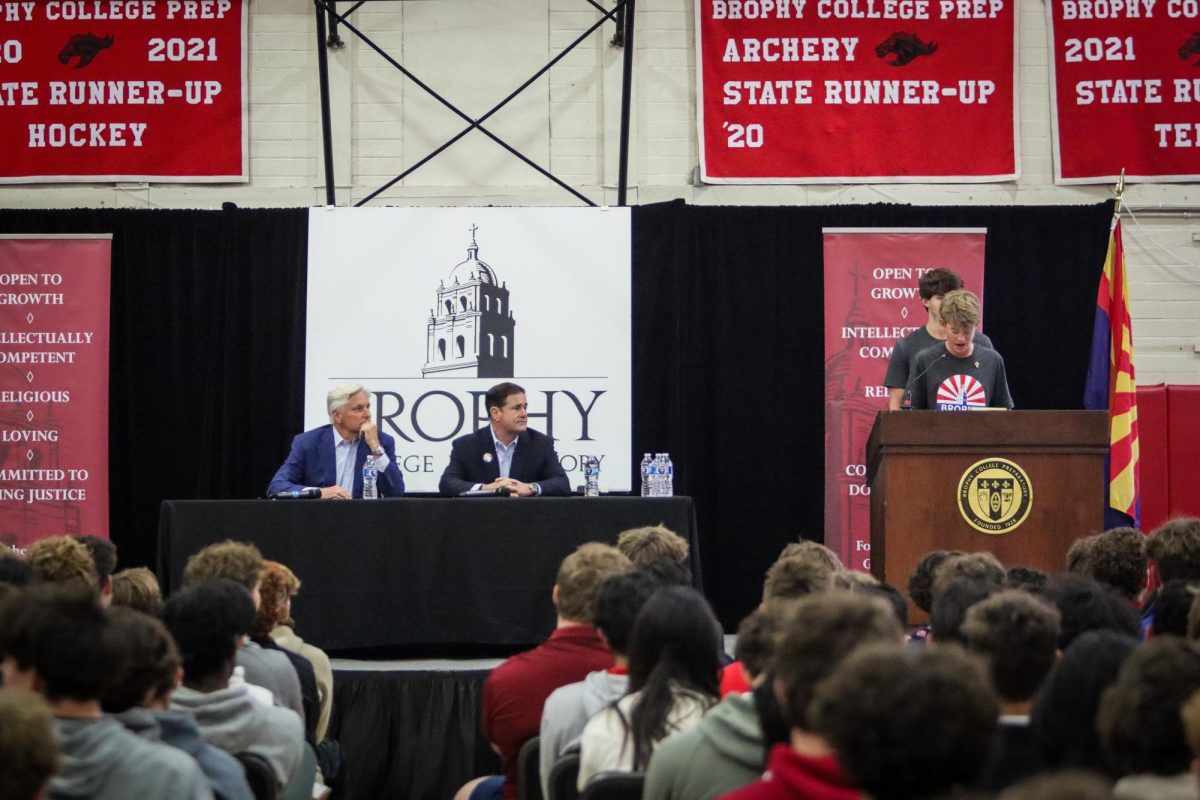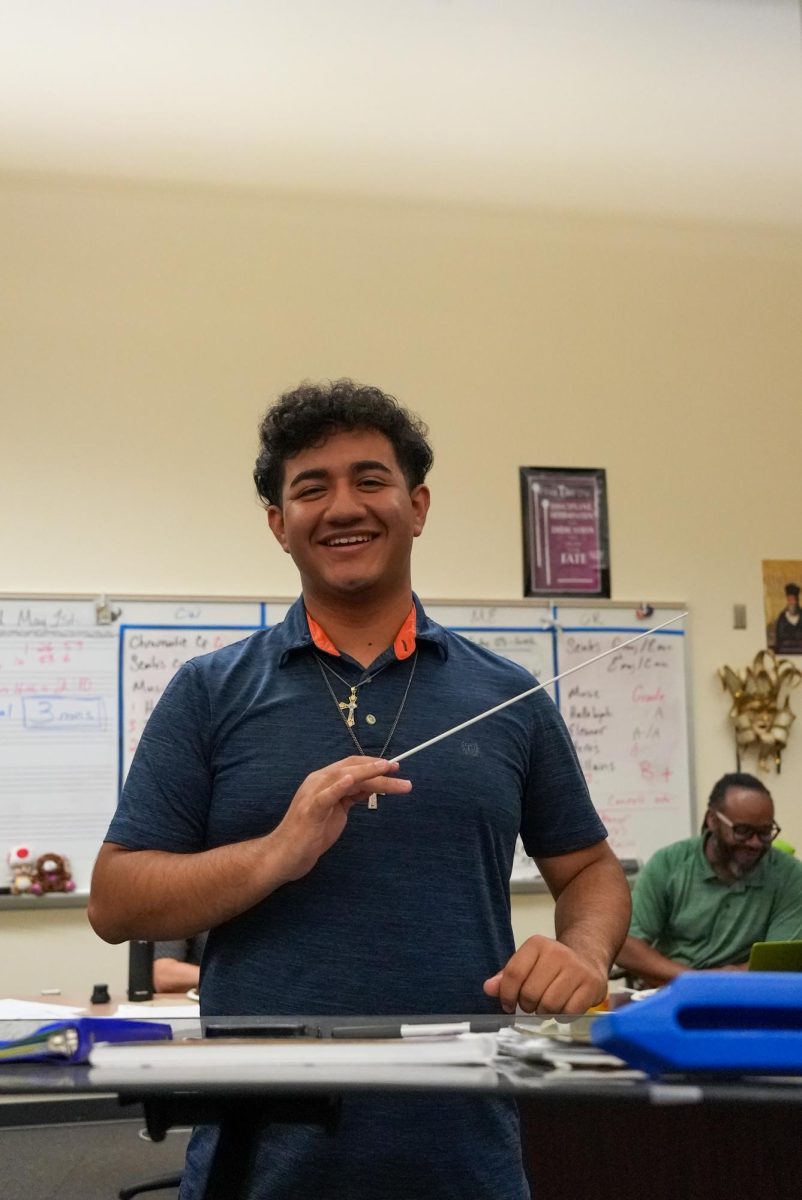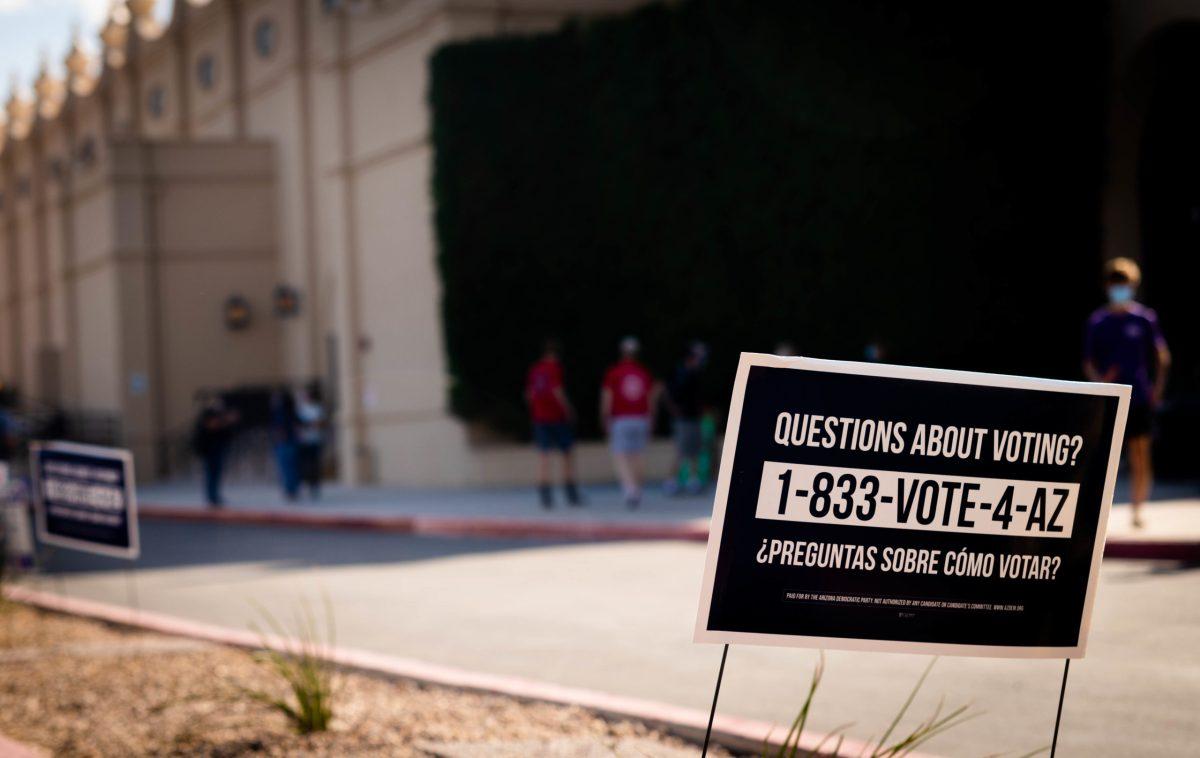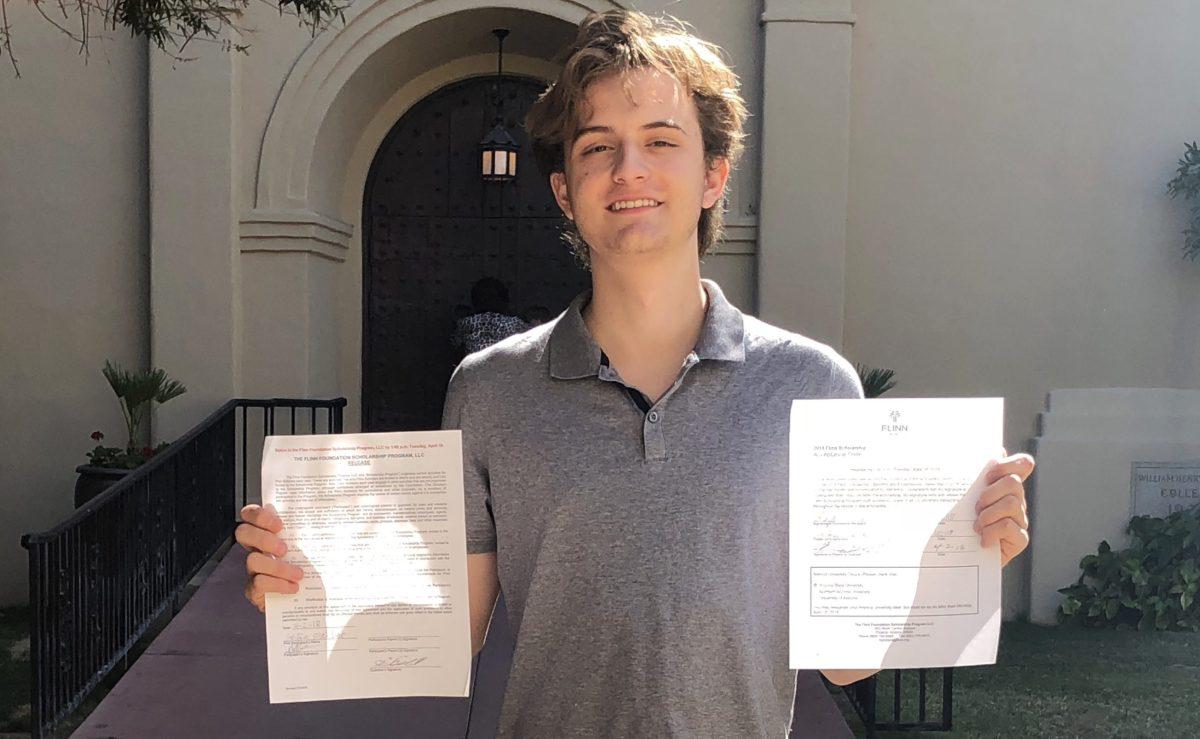Photo by Luis Torres ’16 — Students participated in Brophy’s immersion trip to Nogales.
Video by Mr. Pete Burr and Jake Lee ’16
By Luis Torres ’16
THE ROUNDUP
Brophy’s immersion trips aim to show students the reality of the world around them by varying in locations from Appalachia Mountains to the “campos” of El Salvador.
I was fortunate enough to have gone on the weekend trip with my Brophy brethren to the Kino Border Initiative in Nogales, a city divided by the United States-Mexican border.
KBI pushes for the students on this trip to have three takeaways: humanize, accompany and complicate.
We arrived to the Jesuit house on the U.S. side around 4:30 p.m. Friday, Oct. 2. I dropped my sleeping bag off and headed to Mexico for my first time.
The KBI facility was five minutes south of Mexican customs. The nuns introduced us we and prayed for the food.
After serving dinner, I sat down and had conversations with men, women and kids who were either recently deported or were caught crossing the border illegally.
It was uncomfortable to say the least. The stories as to how and why they crossed resembled those of my family’s, friends’ and parents’.
The ability to speak Spanish fluently and comprehend it fully enhanced my experience.
I met Alex, a 17-year-old from San Salvador, El Salvador.
Earlier this summer, I went on the El Salvador immersion trip with Brophy, so I knew what he meant when he said gang violence was too much.
Alex and I talked about El Salvador for a while and he reminded me about the commitment to justice I made during that trip.
The most memorable part of that weekend was walking the migrant trail.
Empty water jugs, backpacks, articles of clothing scattered the trail and bewildered me.
Out of courtesy, I never asked my parents how they originally crossed. That weekend, however, I felt that I understood what my parents and, many others, have gone through to be where they are at now.
This trip did not give me an answer to the immigration question.
If anything, it further complicated my understanding of the border and its possible solution.
KBI gave me stories, interactions and, most importantly, people.
Immigration isn’t about numbers or statistics; it’s about human dignity.
It’s about living, breathing people fleeing violence in the pursuit of a better life.













